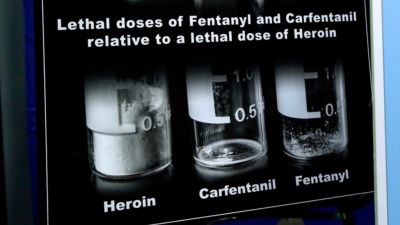Dark web drug suppliers 'voluntarily banning' deadly synthetic opioid fentanyl

Some dark web drug suppliers have voluntarily banned the synthetic opioid fentanyl because of the risks it poses to users, according to the National Crime Agency.
They have stopped selling it because it can lead to deaths and subsequent police attention, one of the NCA's leads on drugs, Vince O’Brien, told the Observer.
Fentanyl is a prescription painkiller generally administered by doctors in the form of a patch or lollipop. It can be up to 100 times stronger than heroin and leaves many people addicted.
Figures released in August showed that there were 75 deaths linked to it in England and Wales in 2017, an increase of 29% from 2016 when there were 58.
Mr O’Brien told the paper that selling "high-risk commodities" can increase the risks for dark web suppliers.
He said: “There are marketplaces that will not accept listings for weapons and explosives – those are the ones that will not accept listings for fentanyl.
"Clearly, law enforcement would prioritise the supply of weapons, explosives and fentanyl over, for example, class C drugs – and that might well be why they do this.
“There are also drug users on the dark web who say on forums that they don’t think it’s right that people are selling fentanyl because it is dangerous and kills a lot of people.”
Fentanyl first became a big issue in the UK last year and the Government pledged to crack down on it before it caused a deadly crisis like that seen in the United States, where tens of thousands of deaths are attributed to opioids.
US rapper Mac Miller died from an accidental overdose of cocaine, fentanyl and alcohol in September.
And singing superstar Prince died after an accidental overdose when he self-administered fentanyl in April 2016.